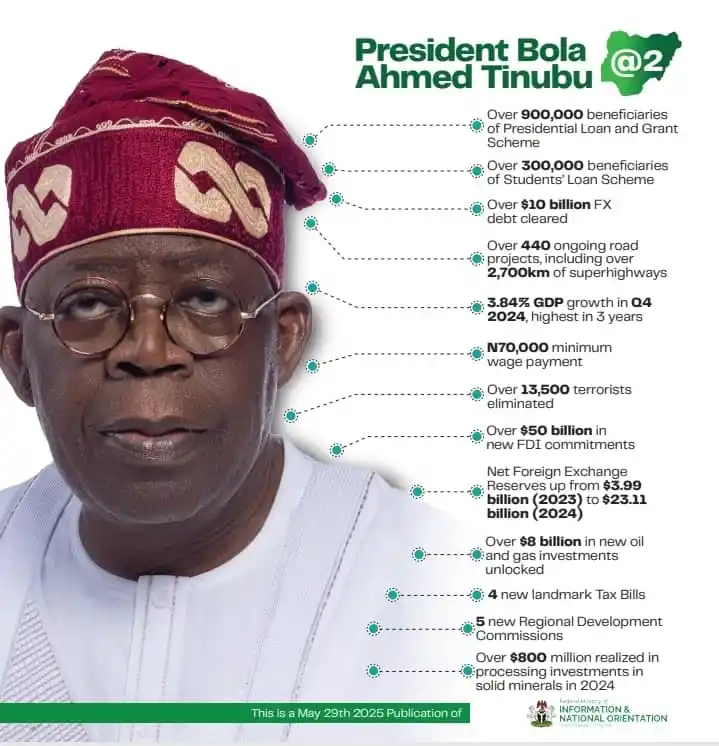Our Terms & Conditions | Our Privacy Policy
Africa Can Still Play Pivotal Role in Global Technology -FUTA don
A professor of Applied Manufacturing Technology, Machine tools and Cutting tools at the Federal University of Technology Akure FUTA, Olayinka Awopetu has stated that Africa has the wherewithal to play a more pivotal role in technology globally if the right vision and structure are unfurled by its leadership. He said if the current pace innovation, resilience, and a unique approach to solving local problems is maintained, the continent is laying the foundation to not just catch up but rapidly redefining the erstwhile narrative. Professor Olayinka Awopetu pointed this out while delivering the 184th inaugural lecture of the Federal University of Technology Akure FUTA on the 26th of August 2025 with the topic “Metal cutting and theory of chip formation: The history of a Science without History.
Professor Awopetu said “metal cutting started 600,000-1,000,000 years ago somewhere in Tanganyika, Africa in present day Tanzania which shows that Africa was leading the world at some point but can still accelerate its trajectory with stronger infrastructure investment, policy support, and education reform”. The lecturer stated that metal cutting has been practiced for millennia with tools and techniques evolving gradually through trial and error however the scientific understanding and theoretical models are a more recent development, primarily from the 19th and 20th centuries and is still evolving continuously with ongoing research and development.

The don who has made groundbreaking research in advance manufacturing, machine tools and cutting tools said Metal cutting is a cornerstone of modern manufacturing, playing a vital role in transforming raw materials into precise components used in countless products and industries. From everyday consumer goods to complex aerospace systems, metal cutting processes are involved in nearly every stage of production. Its importance lies not only in shaping materials to meet design requirements but also in ensuring efficiency, accuracy, and cost-effectiveness across industrial operations.
Professor Awopetu said “The theory of metal cutting is not a single static science but rather a continually evolving field of study that builds upon previous knowledge and practices. While the historical context is important for understanding its evolution, the focus remains on the ongoing development and refinement of theoretical models and practical applications”.

He cited examples of objects made possible by metal cutting to include smartphone cases, car engine parts laptops, medical implants, power generation turbines, airplane parts etc. some of whose manufacturing plants are in Africa.
The don pointed out that one of the most significant reasons metal cutting is important is because of the precision it offers. “Many engineering applications require tight tolerances and smooth surface finishes that cannot be achieved by casting or forging alone. Metal cutting allows for the final refinement of parts to meet exact specifications, ensuring functionality and performance. For instance, engine components, surgical instruments, and turbine blades all demand high dimensional accuracy, which is made possible through advanced machining techniques,” he said.
He further stated that metal cutting has a direct impact on manufacturing efficiency and cost control. With the development of high-speed cutting tools, CNC (Computer Numerical Control) machines, and automated systems, production rates have significantly increased while reducing waste and labor costs. These advancements not only speed up the manufacturing process but also reduce errors, leading to higher productivity and profitability.
The lecturer submitted that metal cutting is an essential and irreplaceable process in the world of manufacturing. According to him, “ It provides the precision, flexibility, and productivity needed to meet modern engineering demands, supports the development of other manufacturing technologies, and contributes significantly to industrial growth and innovation. As industries continue to advance, the importance of metal cutting will only increase, solidifying its role as a foundational element in the production of high-quality, high-performance products.”
In her capacity as Chairman, the Vice Chancellor Professor Adenike Oladiji commended Awopetu for the cerebral delivery of the lecture. She described the lecturer as a consistently productive scholar who has contributed immensely to his area of specialization and lauded him for his commitment to academic excellence and commitment to the university community.
Images are for reference only.Images and contents gathered automatic from google or 3rd party sources.All rights on the images and contents are with their legal original owners.



Comments are closed.